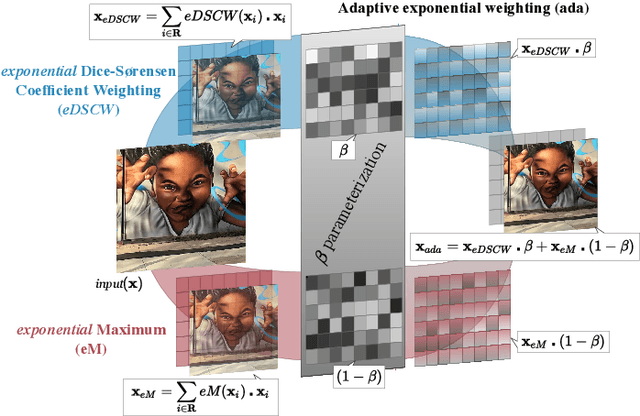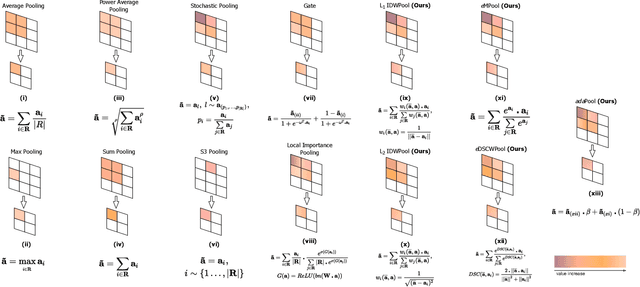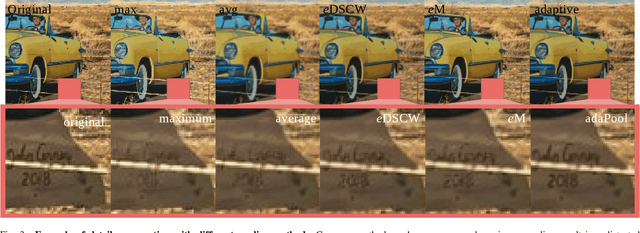AdaPool: Exponential Adaptive Pooling for Information-Retaining Downsampling
Paper and Code
Nov 02, 2021



Pooling layers are essential building blocks of Convolutional Neural Networks (CNNs) that reduce computational overhead and increase the receptive fields of proceeding convolutional operations. They aim to produce downsampled volumes that closely resemble the input volume while, ideally, also being computationally and memory efficient. It is a challenge to meet both requirements jointly. To this end, we propose an adaptive and exponentially weighted pooling method named adaPool. Our proposed method uses a parameterized fusion of two sets of pooling kernels that are based on the exponent of the Dice-Sorensen coefficient and the exponential maximum, respectively. A key property of adaPool is its bidirectional nature. In contrast to common pooling methods, weights can be used to upsample a downsampled activation map. We term this method adaUnPool. We demonstrate how adaPool improves the preservation of detail through a range of tasks including image and video classification and object detection. We then evaluate adaUnPool on image and video frame super-resolution and frame interpolation tasks. For benchmarking, we introduce Inter4K, a novel high-quality, high frame-rate video dataset. Our combined experiments demonstrate that adaPool systematically achieves better results across tasks and backbone architectures, while introducing a minor additional computational and memory overhead.
 Add to Chrome
Add to Chrome Add to Firefox
Add to Firefox Add to Edge
Add to Edge